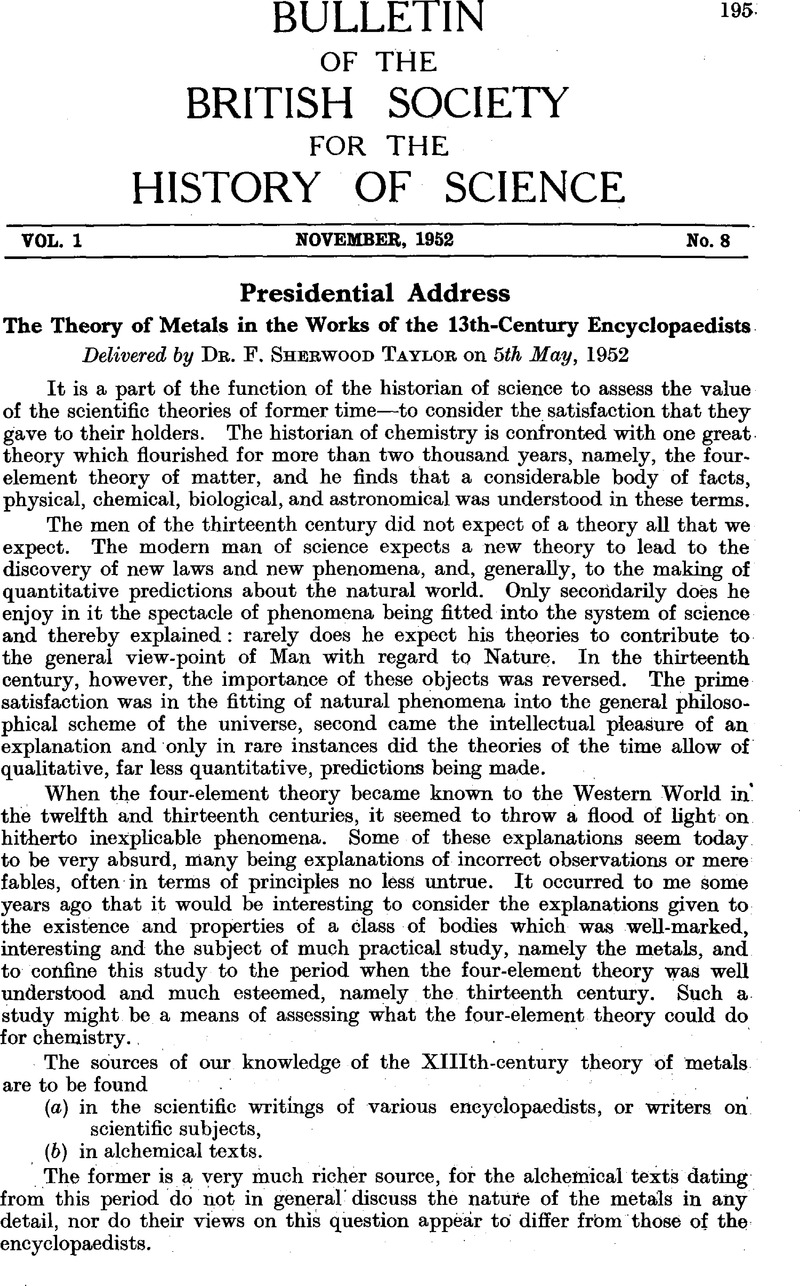No CrossRef data available.
Article contents
The Theory of Metals in the Works of the 13th-Century Encyclopaedists
Published online by Cambridge University Press: 05 January 2009
Abstract

- Type
- Presidential Address
- Information
- Bulletin of the British Society for the History of Science , Volume 1 , Issue 8 , November 1952 , pp. 195 - 204
- Copyright
- Copyright © British Society for the History of Science 1952
References
1 Baur, L.Die Philosophische Werke des Robert Grosseteste Bischofs von Lincoln. (Beiträge zur Geschichte der Philosophie des Mittelalters. Band IX. Munster-i-W. 1912.)Google Scholar
2 Ibid. p. 6.
3 Aristotle, . Meteorum. IV. Cap. X. 15.Google Scholar “So gold and silver and bronze and tin and lead and glass and many stones that have no names are of water, for they all liquefy by heat.” Although the IV Book of Meteors is not Aristotle's, similar views are expressed in the III Book.
4 Timaeus: (Cornford, 's Plato's Cosmology—translation p. 248–251Google Scholar, with accompanying discussion).
5 Albertus, , De Mineralibus. Lib. III, Cap. II.Google Scholar
6 The meaning of the word is simply “anything dug up’. Until quite modern times the word simply meant mineral or stone.
7 Realgar is arsenious sulphide, ochre and ruddle are clayey iron oxides; all three were used as red pigments.
8 Aristotle, . Meteorologica. Book III. Ch. 6. (378c.)Google Scholar
9 Albertus. De Mineralibus. Lib. III. Cap. X.
10 Ibid. Cap. IV.
11 De Liberalibus Artibus op. cit. note 1.
12 Liber Abvali Abincine de Anima in Arte Alchimiæ in Artis Chemicae Principes, Avicenna atque Geber…. Basileae, . 1572, pp. 32–3.Google Scholar
13 Rolls Series. Pp. 375 ff.
14 Loc. cit. Note 1.
15 Op. cit. note 9. Cap. IX.
16 Op. cit. note 1. Cap. 10 (279).
17 The Speculum Alkimiae attributed to Bacon is in my opinion to be rejected as not being written in Bacon's very characteristic style. Moreover, Bacon's undoubted works treat alchemy in a rather perfunctory manner which may indicate that he was not much interested in the art.
18 Op. cit. note 1. Cap. II (280).


